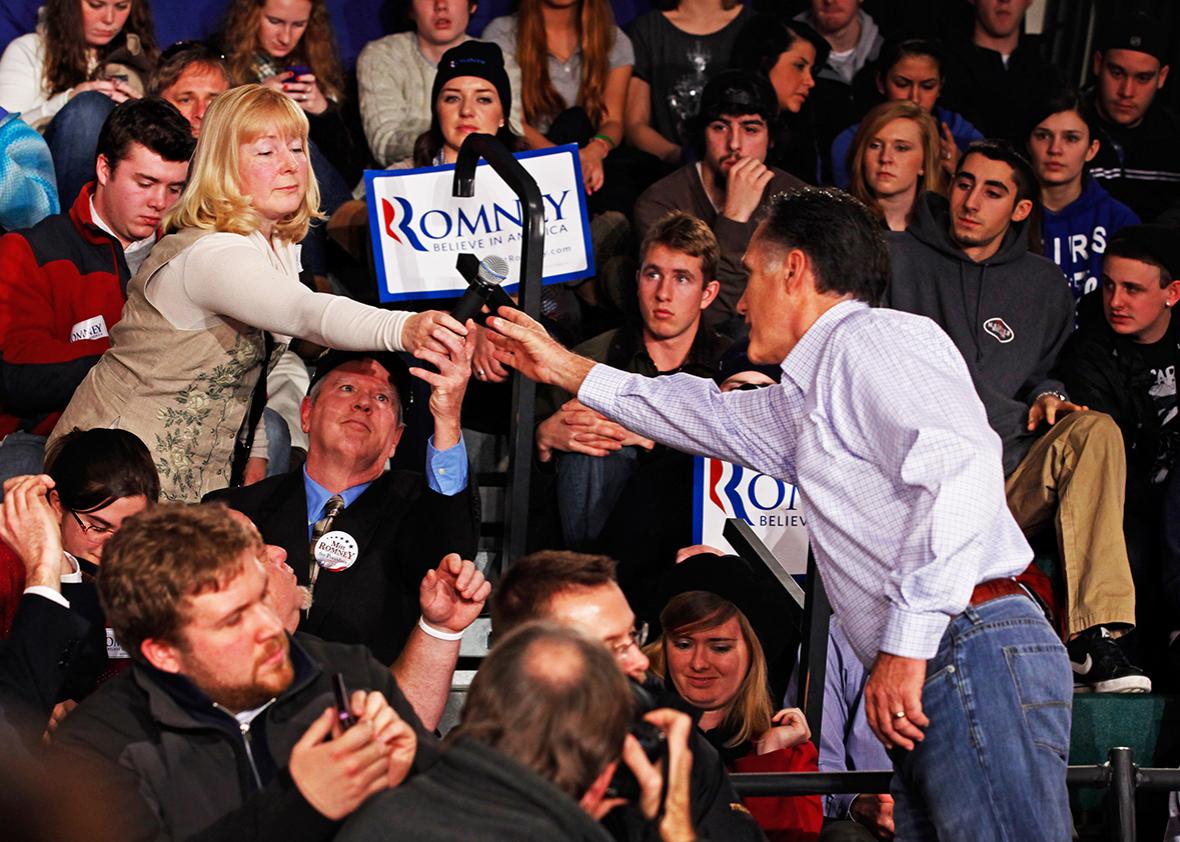It did not take moderator Elaine Quijano long to lose control of Tuesday night’s vice presidential debate. It began right off the bat, really, when she asked Sen. Tim Kaine, “What about your qualities, your skills, and your temperament equip you to step into that role at a moment’s notice?” and he responded with a memorized opening speech. Not long after Mike Pence began answering questions, Kaine was annoyingly interrupting him, and Pence, whenever he got a free minute to speak, was whistling past Donald Trump’s 16 months of embarrassing and offensive comments.
Controlling a situation in which debaters are determined to just yammer out their oppo for 90 minutes is never easy—especially in a country where the news media has a worse net approval rating than even Trump. Ignoring some slick moderator’s diktats, if not outright insulting the moderator, is a means of proving oneself in touch with the electorate. Yet in doing so, they give the electorate a crappy, disorderly argument about nothing. What’s the best way to get out of this quandary and to have a comprehensible discussion that allows the country to press forward with some shred of dignity?
You can’t just get rid of the moderators entirely. A pure state of nature is still worse than playground restlessness. What you can do is just allow the moderator to serve as a direct pass-through for the questions of ordinary people, whose concerns the candidates will be less eager to blow off.
Sunday’s town hall debate in St. Louis is the last best opportunity in this horrifically dumb election to foster a meaningful conversation between the two candidates, at least to the extent that meaningful conversation could ever be had between one person who is not Trump and one person who is. The format transfers power from a necessarily ineffectual moderator to those are known in campaignese as “average people,” or human voters.
Having average people do the asking alleviates the problem of candidates hearing the questions and then just saying whatever they want. They will have to address the person’s question or look like a jerk in front of 50 million-plus viewers. Having average people ask the questions also allows those people to relate personal stories about problems that they’re facing.
The news anchors who moderate and select the questions are cossetted from the country’s economic problems. They are rich people. If news anchors were to tap into the problems they’re facing in today’s fierce economy, we would hear about shiftless Park Avenue doormen and the like. So when they try to channel the economic concerns of average people, we get questions, like, I don’t know …
Quijano: Sen. Kaine, on the issue of Social Security, in 18 years, when the Social Security trust funds run out of money, you’ll be 76. The Committee for a Responsible Federal Budget estimates your benefits could be cut by as much as $7,500 per year. What would your administration do to prevent this cut?
The framing here is that of a deficit scold—Social Security’s not going to be around anymore! Boogity boogity boo!—that implies the program is doomed. It directly cites a Pete Peterson operation! It is the sort of question one asks when one wants to appear savvy about politics. It’s right out of the Serious Adult Beltway Debate starter kit.
Now let’s consider another hypothetical Social Security question that a moderator might ask: “Do you support expanding, and not cutting, Social Security’s modest benefits?”
This is not my question. It is the question submitted by Ellen P. from North Carolina, who submitted it at the Presidential Open Questions forum. This site, put forth by the bipartisan Open Debate Coalition, allows people to submit their own questions, have them voted on, and vote on others; they’ll be submitted to debate moderators Martha Raddatz and Anderson Cooper, who have said they’ll consider using them on Sunday. As of 11 a.m. Friday, Ellen P.’s question was the third most popular on the site out of 12,226 submissions, with more than 35,000 votes since it was submitted on Sept. 28. If you look at the related popular questions that were “merged” into this, most ask about restoring cost-of-living increases and lifting the cap on Federal Insurance Contributions Act. They take as a given, in ways that network moderators’ questions typically don’t, the notion that maintaining and perhaps enhancing Social Security is necessary in this precarious economy. “I have paid into Social Security for over 40 years and my son has paid in for 25 years and will continue to pay,” Susie C. from Texas asks in a related question that’s garnered more than 27,560 votes. “How are you going to keep our money safe for all people that have contributed?”
It’s personal narratives like that that turn something like Social Security from an accounting issue to a moral question that’s harder to dodge—or harder, still, to convert into a cheap, unrelated #slam on your opponent. Consider the No. 1 question on the forum. “Would you support requiring criminal background checks for all gun sales?” Richard M. from California asks. “My son was murdered by someone who should have never had a gun. Gaps in our current system make it easy for felons & other dangerous people to buy guns online & at gun shows, no questions asked.”
I have a hard time seeing Hillary Clinton convert that one into one of her awful zingers against Trump or Trump leaping from that into a line about how Bill Clinton did sex things with Gennifer Flowers and Monica Lewinsky.
The first two debates have gone off the rails because they reflect the spectacle of what politicos call “the process”: isolated, detached, surreal, overproduced, overcaffeinated, and hollow. The town hall, done right, allows voters to grab this bizarre process from the parallel plane on which it’s been conducted and return it for a moment to something like reality.
